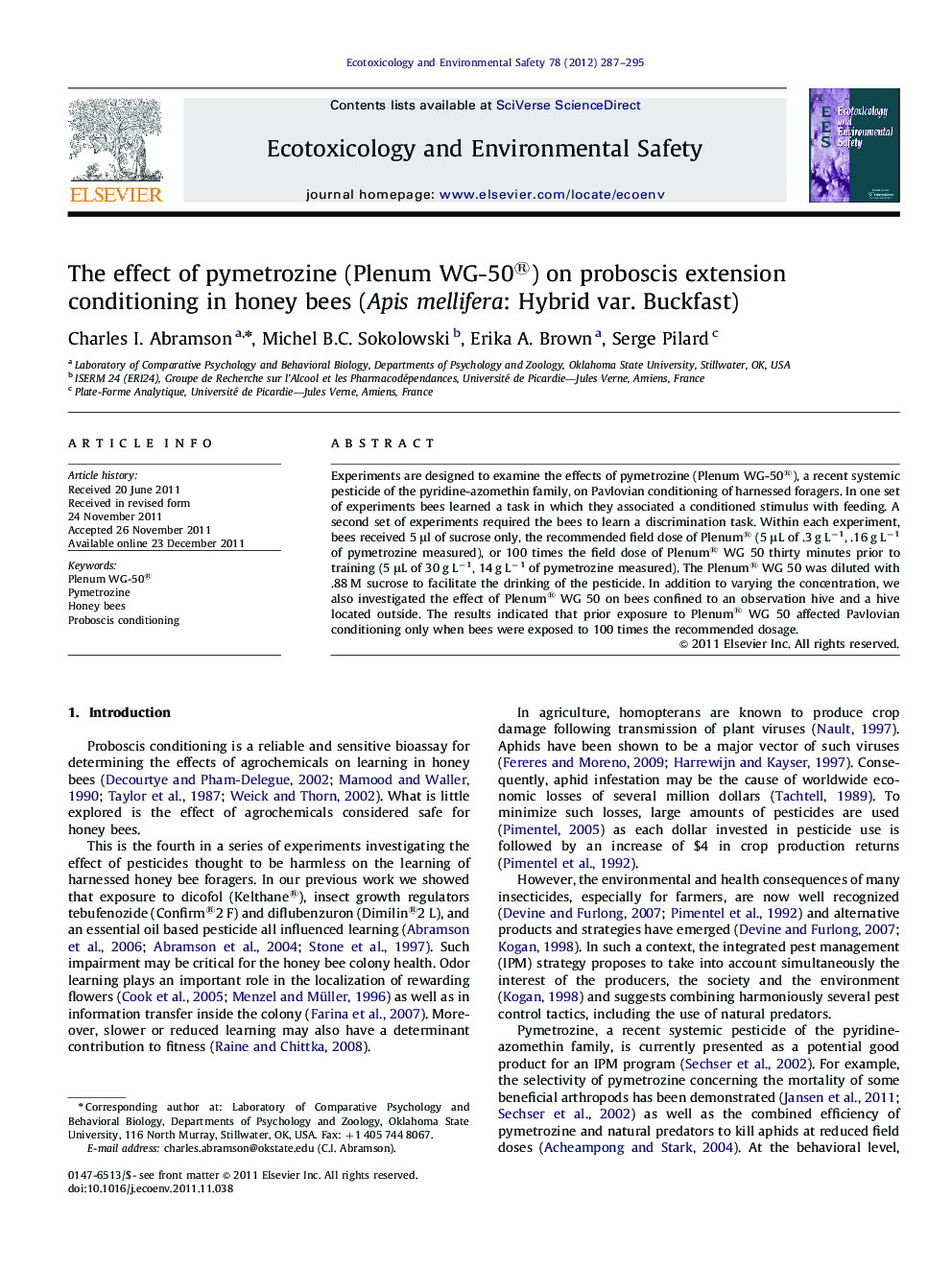| Article ID | Journal | Published Year | Pages | File Type |
|---|---|---|---|---|
| 4420921 | Ecotoxicology and Environmental Safety | 2012 | 9 Pages |
Experiments are designed to examine the effects of pymetrozine (Plenum WG-50®), a recent systemic pesticide of the pyridine-azomethin family, on Pavlovian conditioning of harnessed foragers. In one set of experiments bees learned a task in which they associated a conditioned stimulus with feeding. A second set of experiments required the bees to learn a discrimination task. Within each experiment, bees received 5 μl of sucrose only, the recommended field dose of Plenum® (5 μL of .3 g L−1, .16 g L−1 of pymetrozine measured), or 100 times the field dose of Plenum® WG 50 thirty minutes prior to training (5 μL of 30 g L−1, 14 g L−1 of pymetrozine measured). The Plenum® WG 50 was diluted with .88 M sucrose to facilitate the drinking of the pesticide. In addition to varying the concentration, we also investigated the effect of Plenum® WG 50 on bees confined to an observation hive and a hive located outside. The results indicated that prior exposure to Plenum® WG 50 affected Pavlovian conditioning only when bees were exposed to 100 times the recommended dosage.
► We study the effects of pymetrozine on Pavlovian conditioning of honeybees. ► We examine learning of harnessed foragers in both simple and complex learning. ► Pymetrozine at recommended amounts do not influence learning. ► Pymetrozine at 100× recommended amounts influence learning. ► Effect of pymetrozine on honey bee learning depends on the concentration.
